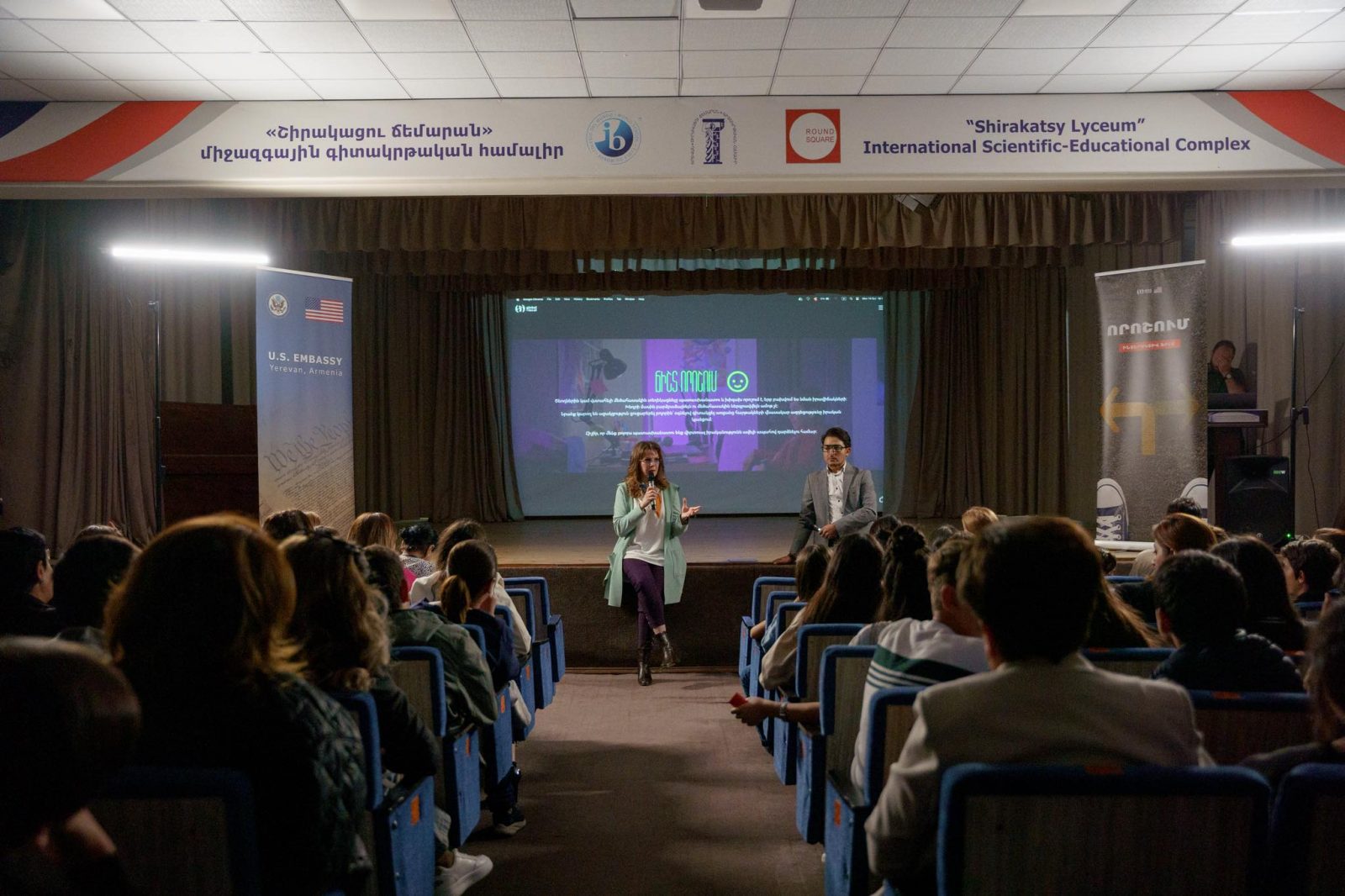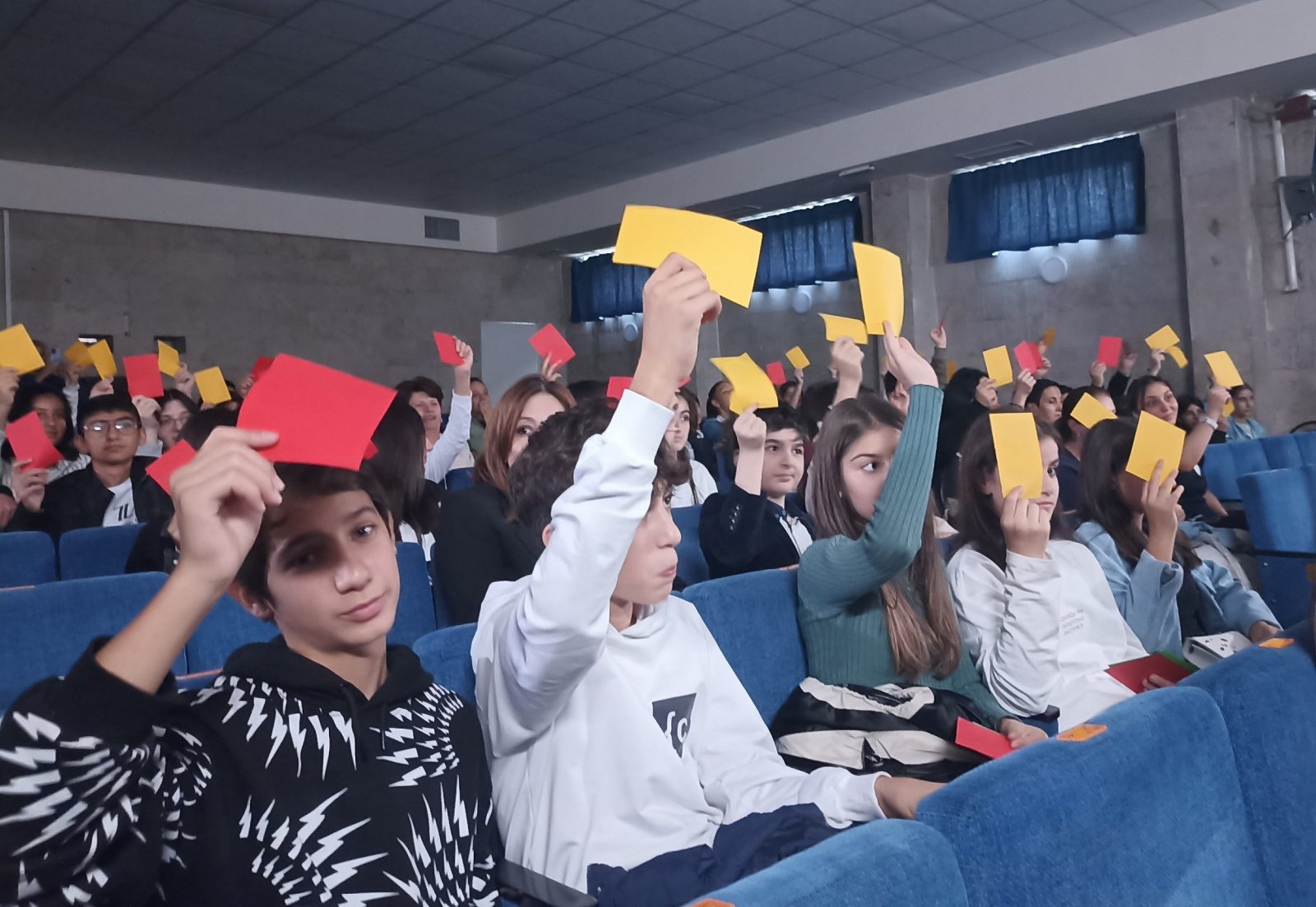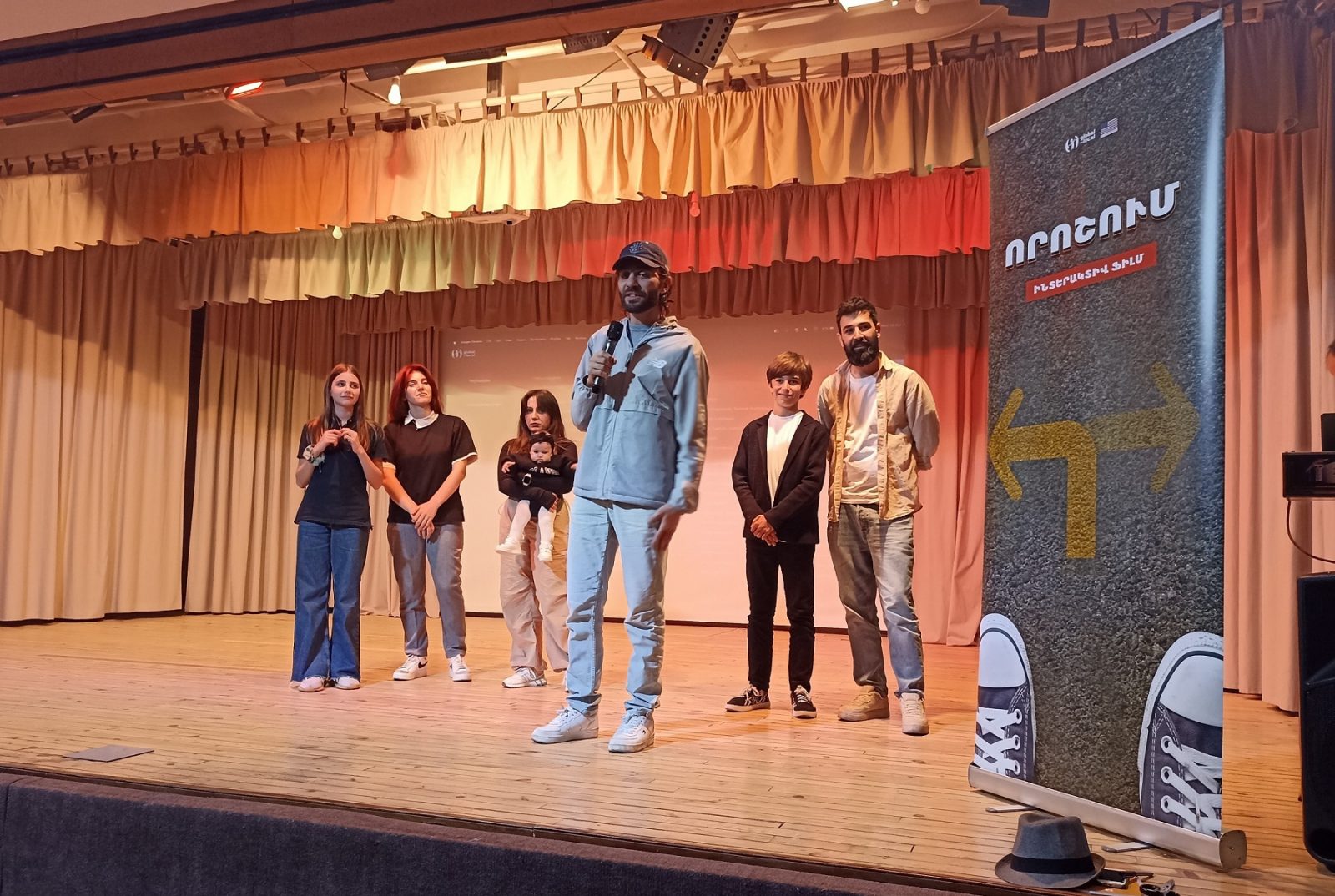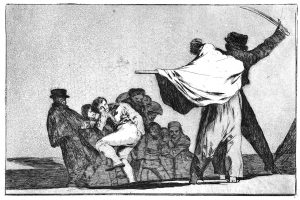Fostering care within schools, neighborhoods, and social circles while learning to empathize with others is a cornerstone for societal growth.
Embedding these values—particularly among younger generations —relies heavily on efforts to combat bullying.
The concept of bullying is not yet widely recognized in Armenia, yet the phenomenon occurs far more frequently. People often describe it using various terms—violence, oppression, mockery, and others.
To effectively combat the phenomenon, Irina Alevert, director of the ‘Global to Local’ organization, firmly believes that it is crucial to use the correct terminology and speak out about it openly.
“When we decided to implement bullying prevention programs in Armenia, based on Swiss experience, we were told that such an issue doesn’t exist in Armenia. Unfortunately, it does. It is quite widespread, especially among schoolchildren,” says Alevert in an interview with Ampop Media.
Considering the abovementioned factor—the heightened vulnerability of schoolchildren to the phenomenon—the primary work must focus on them.
According to our interlocutor, the focus should primarily be on educational efforts—clarifying what bullying is and outlining its potential consequences for both the victim and the perpetrator (the bully).
The organization has created a series of educational short videos and materials on bullying, including an interactive film titled ‘Decision,’ which is also available online.
The film was presented for private viewing in around 200 schools across Yerevan and the regions. In October, it was also screened at the ‘Shirakatsy Lyceum’ International Scientific-Educational Complex, with students attending from both Yerevan and regional schools.

The film presents several scenes of bullying. Its interactivity lies in offering the audience the chance to make their own decision at the end of each scene, choosing from three options:
1. Remain indifferent to what is happening,
2. Intervene,
3. Seek help from adults.
“Based on previous screenings in schools, we have found that students primarily choose the second option. However, in this situation, the most appropriate decision is to seek help from an adult,” says Alevert, adding that the school and teachers play a crucial role in fostering trust toward adults.
The school and teachers play a crucial role in fostering trust toward adults.
Educators present at the film screening also highlighted the importance of fostering a trust-based atmosphere in student-teacher relationships during the discussion. On the other hand, they suggested that in situations requiring quick solutions, a swift response from peers and not remaining indifferent could prove to be a much more effective approach.
“During Lyceum sessions, we regularly discuss the topic of bullying with our students, tailoring the conversations to their age-specific characteristics. They understand what bullying is and the consequences it can have. Proper educational work with children is crucial in this case. We are dealing with a highly sensitive issue that requires an exceptionally delicate approach,” says Narine Hovhannisyan, counselor of pedagogical programs at the Lyceum.
Sharing her observations about the film, Hovhannisyan highlights that, for instance, when discussing the potential consequences of bullying at the Lyceum, they avoid pointing out the worst-case scenarios. However, she noted that such scenarios were included in the film.
“Depicting scenarios where a bullied child, for instance, commits suicide, can send a very dangerous message. We must remember that we are dealing with teenagers, and such portrayals might harm rather than help.”
Another significant aspect the Lyceum educators hoped to see in the film was content focused on educational and explanatory work with both the bully and those who passively observe the phenomenon. In their view, the scenes where a trusted adult intervenes in acts of bullying offer only a temporary solution and fail to prevent future incidents unless the dangers of such behavior are thoroughly explained.
In general, the fight against indifference is central to preventing bullying. On this point, there is consensus among representatives of the ‘Global to Local’ organization, the educators present at the film screening, and a significant part of the pupils.
The reactions and comments from the students varied depending on their perceptions. However, one recurring viewpoint was that bullies often have psychological issues that make them aggressive. Consequently, in-depth work with them, particularly involving psychologists, is deemed highly important.
Swiss experience, according to Alevert, has also shown that bullies often become offenders in many cases, eventually becoming part of the criminal world.
Since today’s schoolchildren will be tomorrow’s decision-makers and change agents, the type of society we will have depends on their behavior, perceptions, and level of empathy.
As mentioned at the beginning of the article, bullying is not a new phenomenon, but the term has only recently started to gain traction in Armenian society. Bullying has a number of characteristics that indicate we are dealing with this phenomenon, including:
- Repetition
- Power imbalance
- Mockery, ridicule
- Psychological pressure, and more.
As part of the fight against bullying, programs aimed at raising awareness about the phenomenon not only for students but also for teachers will continue, according to Irina Alevert, with her organization pledging to continue these efforts.
Authored by Lilit Poghosyan
Responsible editor: Karine Darbinyan
Photos by Lilit Poghosyan and ‘Global to Local’
Designed by Van Simon
The story has been prepared by Ampop Media in collaboration with the Friedrich Ebert Foundation (FES). The opinions expressed in this publication are those of the authors and are not necessarily aligned with those of the Friedrich Ebert Foundation.
ATTENTION © Content from Ampop.am and visuals bearing the Ampop Media logo may only be published on other audiovisual platforms with prior agreement from the management of Ampop Media and/or JFF.
Փորձագետի կարծիք
First Published: 17/01/2025










